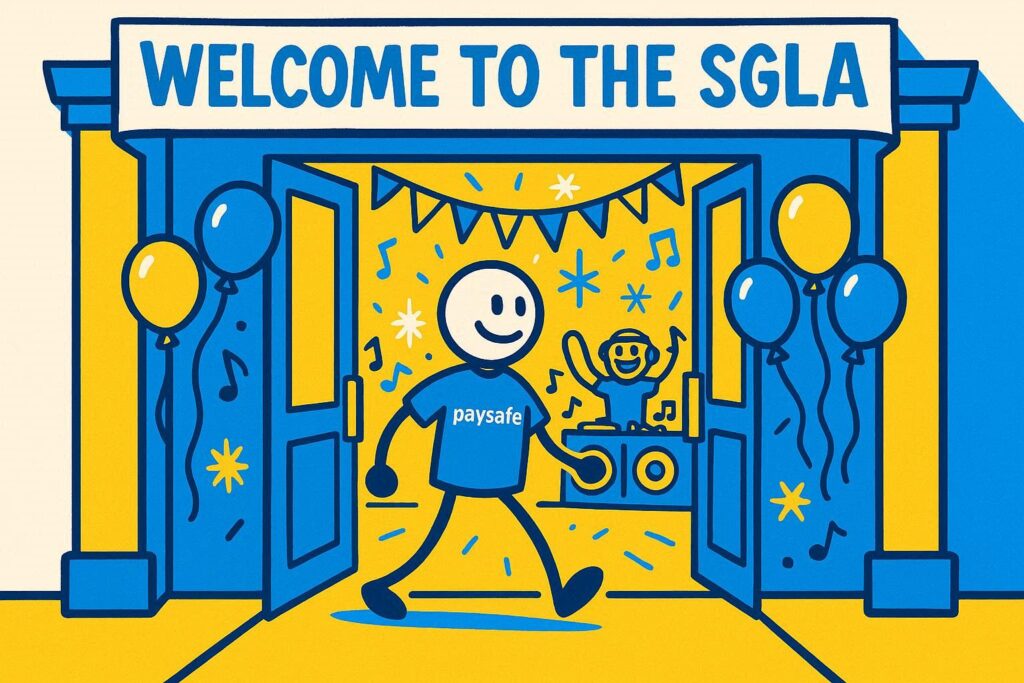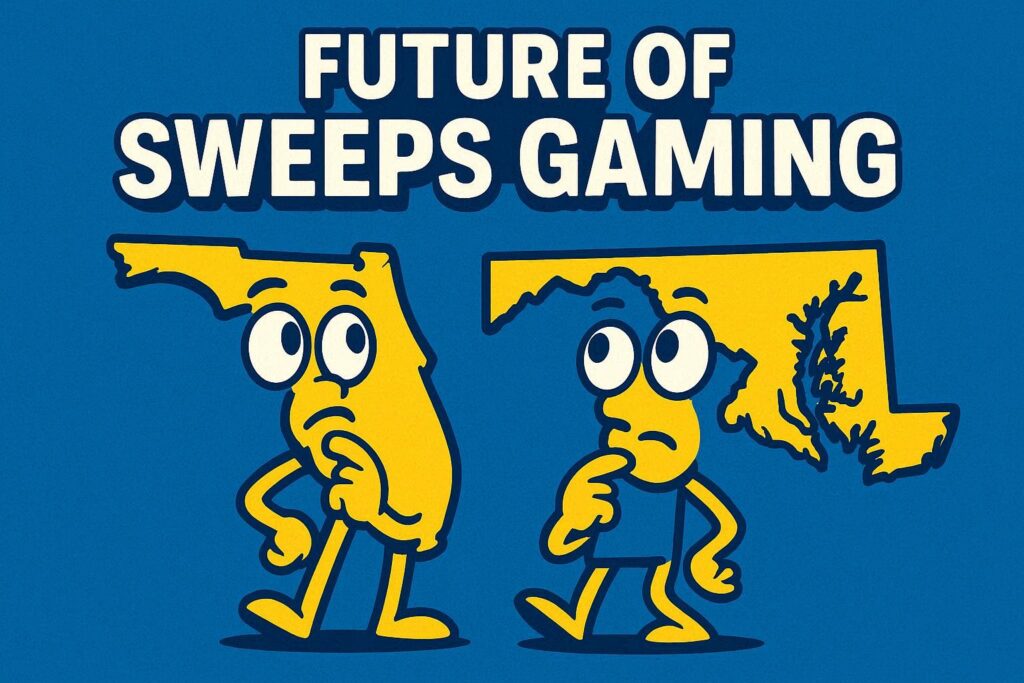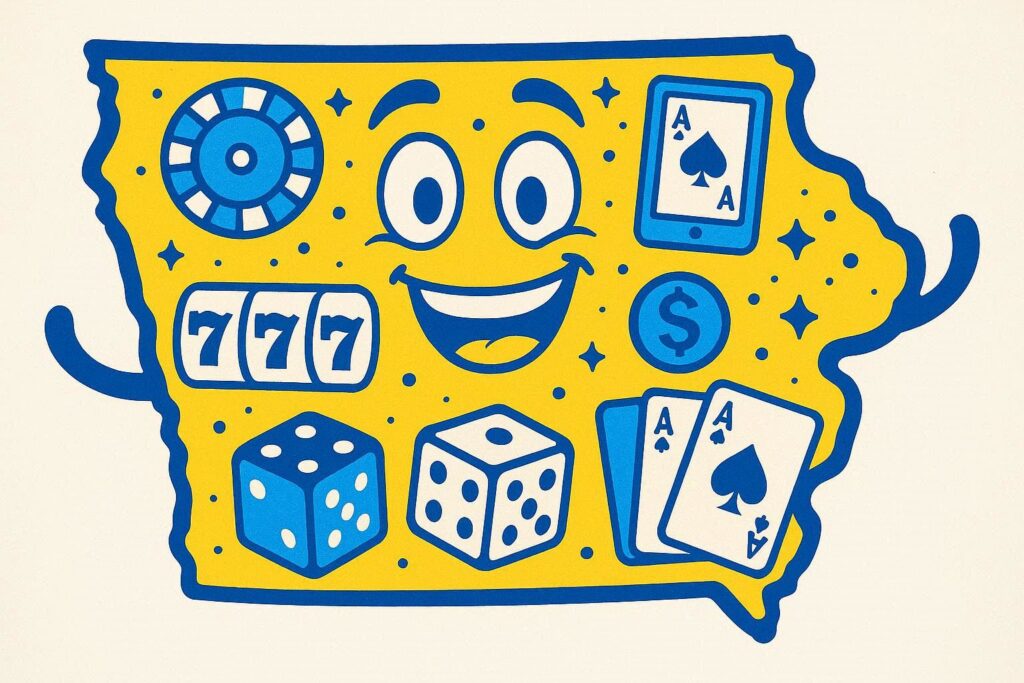The online sweepstakes gaming industry could use a win right now.
So far, 2025 has been, well … eventful for sweeps operators, who’ve been bombarded with ban bills and cease-and-desist letters and lawsuits and the overall pressure of owning the spotlight of scrutiny in the gambling sector for well over six months.
There have been some wins, to be sure.
Bill failures in Arkansas, Texas, Illinois, and Florida, for example.
But the losses are louder so far — particularly the sweeps ban bills passing in New York and New Jersey, a deluge of 42 cease-and-desist letters in Louisiana, and now swelling momentum for a California sweeps ban bill backed by the influential gaming tribes.
According to one legal expert, though, the passage of Donald Trump’s One Big Beautiful Act creates a bright spot for sweepstakes casinos in the United States — albeit a small one.
Part of the OBBA stipulates gambling loss deductions must be capped at 90% of winnings, which has caused an uproar in the legal gambling market with even one lawmaker announcing she’ll introduce a new bill to reverse that policy and restore the cap to 100% of winnings.
Still, for now, gaming industry executive and consultant Peter Hammon told Sweepsy the 90% cap helps sweepstakes casinos and prediction market apps, which don’t have such a cap.
“Sweepstakes operators and customers generally have more flexibility with respect to reporting sweepstakes ‘prizes’ instead of the relatively standard W-2G reporting required of regulated gamblers,” Hammon said.
So is this a win for sweeps?
Sure, but …
“Right now, it feels like a hollow victory,” Hammon said. “If the industry can stall the progress of the anti-sweeps legislation in California, that will be far more important to the industry’s bottom line.”
Hammon discussed several other topics surrounding the online sweepstakes gaming industry with Sweepsy, as well.
Will 90% cap send more gamblers to sweeps sites?
“In a vacuum,” Hammon said, “I doubt the new rules are enough to transition a significant number of users, particularly because operators and gamblers will have time to adjust and adapt before the new rules go into effect next year.
“However, it’s another knock against the regulated online gambling industry’s efforts to maintain market share in the face of increased state taxes (e.g. Illinois), geographic restrictions in huge states like California and Texas, and the prevalence of crypto payment processing in sweepstakes and on unregulated sites.”
As Hammon mentioned, the 90% cap will begin to take effect for tax year 2026 and beyond.
If that cap does go into effect without any passage of bills to counteract it, if a gambler wins $100,000 over 2026 and also loses $100,000, they would only be able to deduct $90,000 — which would make $10,000 taxable even though they technically broke even.
And here’s this: If that same gambler loses more than they win ($100,000 losses and $90,000 in winnings, for example), they’d still owe taxes on $1,000.
‘Blank slate’ states most likely to regulate sweeps gaming
On LinkedIn, Hammon wrote recently the 90% cap will hurt market activity and, in turn, hurt state and federal revenue from gambling taxes.
Might that pain inch the door open for lawmakers seeking other revenue sources, such as regulating sweeps gaming?
“I think it’s far more likely we’ll see sweepstakes regulation in states that have a regulatory blank slate for online gambling (e.g. Texas, New Mexico),” Hammon said. “I’m skeptical any state with a pre-existing regulatory model for online sports betting or online casino will ever create an ‘express lane’ for sweepstakes operators, mostly because the entrenched sports betting and online casino industry would likely have enough political power to kill any such proposal.”
That sounds about right. Two of sweeps gaming’s most publicly prominent opponents right now are Light & Wonder, which provides its game library to many real-money iGaming operators, and the Sports Betting Alliance, which consists of BetMGM, DraftKings, FanDuel, and Fanatics.
A potential roadblock: Finding banks, payment processors to work with
According to Hammon, sweeps operators are currently facing, or will soon face, an obstacle that isn’t really being talked about amid all the headlines about bills and cease-and-desist letters and sales taxes and lawsuits.
“Anecdotally, the biggest hurdle I’m seeing for new sweepstakes operators is acquiring payment processing and banking options for deposit/withdrawal,” Hammon said. “Two years ago, there were far more regional banks and payment processors willing to work with sweepstakes, but all the attention focused on the industry over the last 18 months has caused some third party partners to re-evaluate the risk/reward.”
One of the organizations lined up against Assembly Bill 831, the California sweeps ban bill, is the American Transaction Processors Coalition, which is a trade association that represents companies in the payment processing and financial tech industries.
Hammon may be right, though, that the payment processing companies in this coalition may have no choice but to distance themselves from sweeps casinos in California if AB831 passes.








